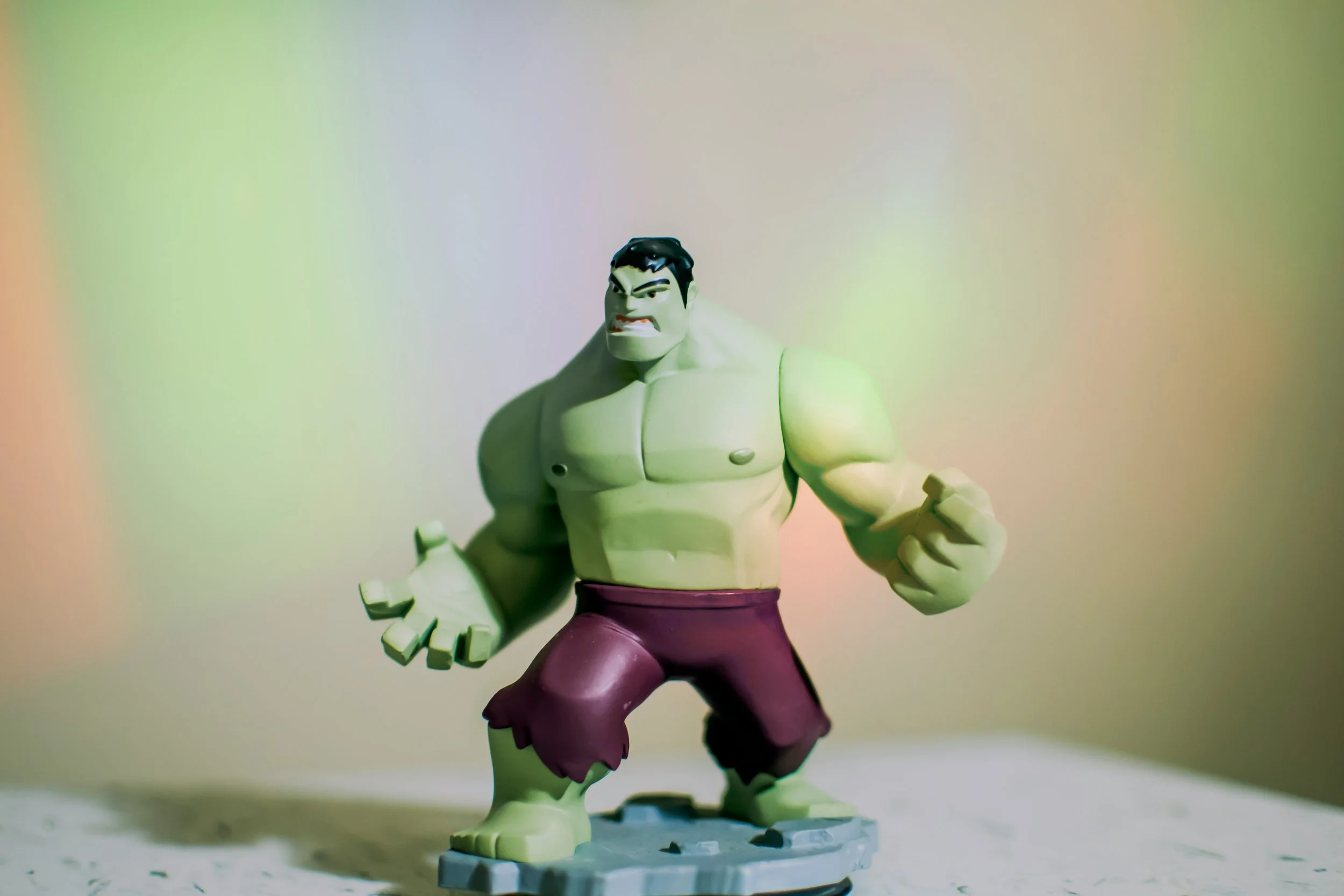
Difficulties & Challenges of Eight
Domineering, Intimidating, Aggressive
When more constricted or less healthy, the Eight ramps up their assertiveness and powerful energy. They usually continue to believe they are simply being direct, but others feel intimidated and pushed around by the Eight. Type Eight used to be called “The Boss”.
Most Eights will have been told at some point that they are intimidating- however they either don’t believe it or they interpret it as others being too soft. Eights often feel that others are being weak, wishy-washy or feeble, which is something they hate. So they usually respond to feedback that they are intimidating by pushing back and wanting others to toughen up and deal with them.
Eights can descend into confrontation and aggression as they increasingly push for what they want and don’t care what others feel. Their hearts are hardened, and their formidable will is exerted to control their world and dominate others. They may relate to the saying “my way or the highway”.
We know that Eight is an anger type and we have said that they are comfortable with feeling and expressing their anger. Anger can be a positive emotion of course, but for Eights it is a short hop to being bad tempered, giving themselves permission to rage or be aggressive. Even the most admirable Eights like Churchill, FDR and MLK had bad tempers.
Anger and the willingness to express anger can become a tool of control and intimidation. Anger brings adrenalin and a “pumped up” powerful feeling. If your personality structure tells you that you need to be strong and in charge, you can feel ok about raging. At work this might be a boss raising his voice, even yelling, and enjoying feeling dominant. In relationships, the person in what couple’s therapist Terry Real calls the “one up” position uses anger to exert power while the person in the “one down” position submits.
Remember how The Incredible Hulk transforms when he is angry- “the madder he gets the stronger he gets”.
We have seen that the natural power and strength of the Eight is their gift when it is tempered with big-heartedness. This quality of heart depends on the Eight being in touch with their empathy towards others and their own tender feelings and vulnerability. This is very difficult for the less healthy Eight under stress.
Since the underlying fear of the Eight is that they will be betrayed or violated, it makes sense that feelings of vulnerability are taboo- by definition, vulnerability means “exposing oneself to attack”. Beneath the surface, Eights feel they must stay in control of their world, including other people, to protect themselves. So, we can understand how an Eight under stress might verge from assertiveness into aggression or become intimidating or domineering.
Power “Over”, For My Own Ends
Closely related to how Eights use their strength when they are less healthy, is for what purpose they use it. When Eights are using their power to protect others or in support of a just cause, they are aligned with a higher purpose. This is the natural leader/protector role- decisiveness and command energy is used for the benefit of the group and people follow the Eight willingly, or people feel safe under the Eight’s wing.
As Eights become more constricted, they increasingly use their strength for their own ends. This is a significant “wrong turn”. The desire to protect themselves from harm now leads the Eight to want power for their own sake. Being in charge, using power to control others, wanting to be “top dog” in their world is an end in itself- the mission becomes simply to be in charge.
All human relationships are power relationships. Hierarchy is built in- we always “know” whether we are above or below another person in rank. This may sound harsh, and it may be changing, but it is reality. Research has shown that about 30% of people will seek power for its own sake- even if there is no reward or advantage- just because they enjoy the intrinsic value of power.
Power “over” others is hard power, the Machiavellian view of power based on the use of force, coercion, and domination. The more modern view of power is “soft” power or power “with”. Relationship advice today aims to balance power, and managers are now taught how to empower others. But this shift is really trying to address the starting point that some people have more power- by gender, race, status, money and even personality- and we would be naïve to believe that hard power is not exercised all around us.
If we recognize that some people seek power, like to control others and have power for its own sake, we can next look at how this creates bad behavior.
Dacher Keltner, an acclaimed social psychology professor at Berkley and founder of the Greater Good Science Center, has written extensively on human emotions and power. In his book The Power Paradox: How We Gain and Lose Influence, he describes how humans react problematically to having power. The “power paradox” is that positive traits lead to gaining power but then having power causes those traits to fade:
In the behavioral research I’ve conducted over the past 20 years, I’ve uncovered a disturbing pattern: While people usually gain power through traits and actions that advance the interests of others, such as empathy, collaboration, openness, fairness, and sharing; when they start to feel powerful or enjoy a position of privilege, those qualities begin to fade. The powerful are more likely than other people to engage in rude, selfish, and unethical behavior. The 19th-century historian and politician Lord Acton got it right: Power does tend to corrupt.
If power corrupts, as the saying goes, absolute power corrupts absolutely. At their worst, there is a very dark place Eights can go where they wield their power and strength in harmful, abusive ways. Tyrants and “strong man” leaders like Trump, Putin, and Saddam Hussein are Eights functioning at the lowest level of health.
Excessive, “Bull in a China Shop”
Eights can use excessive force in everything they do. It’s as if they have so much strength that they have trouble moderating their energy. For example, Riso-Hudson suggest that Eights pay attention to how much force they are using to open a jar to become aware that they are using more force than necessary.
Because they have so much stamina, an Eight may not recognize this excessive force as a problem- they don’t tire easily and they enjoy the feeling of exerting themselves. They may feel invincible and relish their big energy.
The Vice of Eight is Lust. Lust often refers to sexual lust, but the broader meaning is a “psychological force producing intense desire for something … while already having a significant amount of the desired object”. Lust can take any form such as the lust for sex, money or power- it is the excessiveness that matters.
Eights when unhealthy come across as too much- too big, too loud, too intense, too impulsive, having too big appetites and so on. This unrestrained energy causes the Eight to take up too much space and others must step back. Because it feels good to the Eight, they don’t like to moderate themselves in accordance with social graces. This is the “Bull in a China Shop” phenomenon- dishes get broken.
Consider how this forcefulness ties together your understanding of Eight. The whole gestalt of Eight- feeling strong and confident, being comfortable with anger, being assertive, wanting to control their world by taking charge, and how this can descend into dominating others- how relishing their big energy and strength can allow the Eight to exert power in ways that can become distorted. The Eight, and the Eight in all of us, does not want to be violated by others and is afraid of being betrayed or hurt if we let down our guard. This creates armour and energy forced outwards while blocking the heart, emotions and vulnerability. Turning within and reconnecting with their tender heart allows the armour to crack and the natural strength of the Eight to be balanced with empathy and softness.











